Bath Uni scientists harness soil to generate green energy
- Published
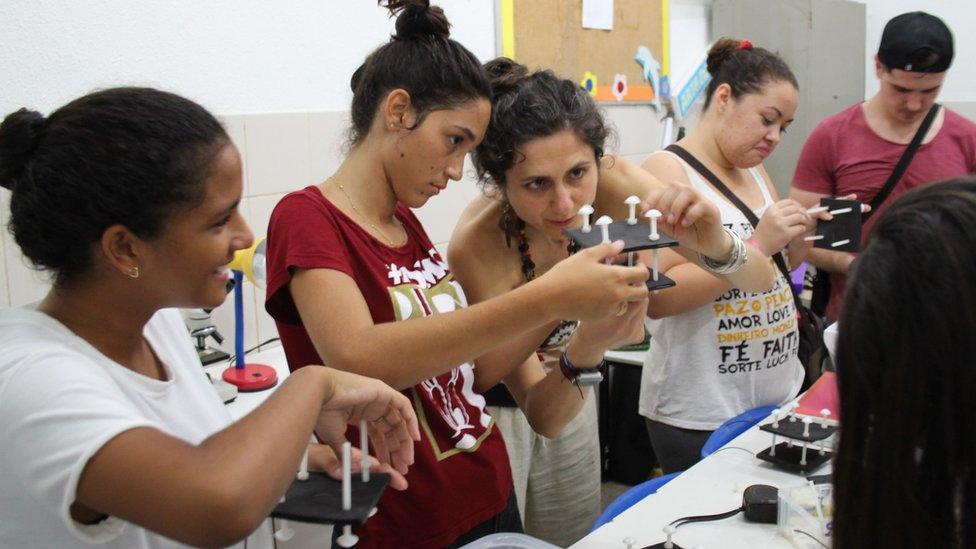
Prof Mirella Di Lorenzo (centre) showing students in Brazil how to build the soil microbial fuel cells
Scientists are harnessing the microorganisms in soil to generate electricity that could one day help decontaminate polluted landscapes.
A team at the University of Bath has already used the clean technology to help remote communities in Brazil purify their water supply.
They are soon to launch a start-up to bring soil microbial fuel cells (SMFCs) to a commercial market.
The researchers hope SMFCs can help the world end its reliance on fossil fuels.
Mirella Di Lorenzo, a professor of biochemical engineering, explained how microorganisms generate electrons as they break down organic matter in soil.
"All we do is capture those electrons so we can make electricity out of them," she told BBC West.
SMFCs only generate tiny amounts of electricity, but unlike established renewable technologies it does not rely on materials that are difficult or unsustainable to source.
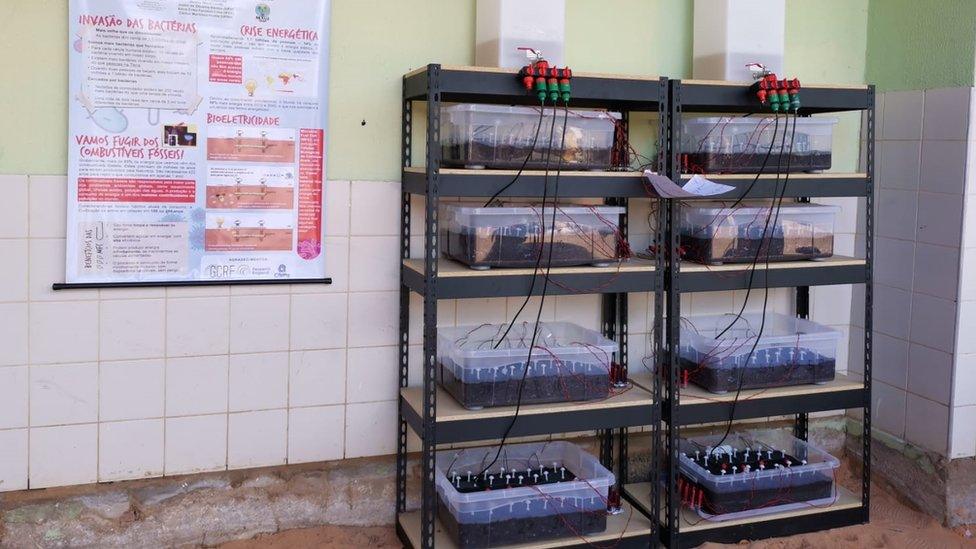
The soil microbial fuel cells can generate reliable and low cost energy
Prof Di Lorenzo said its advantage was how cheap the material is and also the fact it needs very little maintenance once set up.
It also does not add to the growing problem of e-waste once it reaches the end of its life in the way that solar panels and batteries currently do.
"It's an exceptionally simple device," Prof Di Lorenzo said.
In 2019, the team conducted a pilot in a semi-arid fishing village in the north east of Brazil which is reliant on water stored from the rainy season for use throughout the rest of the year.
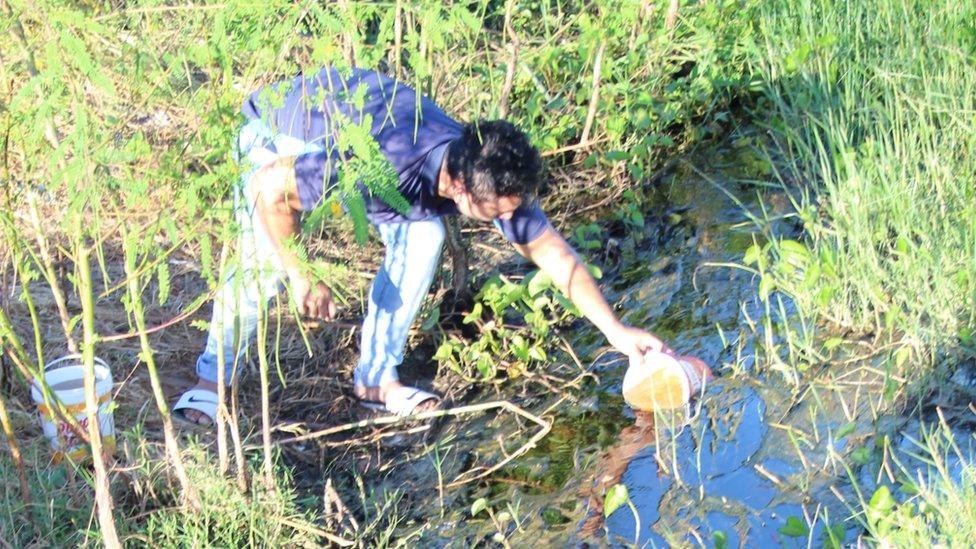
The fuel cells can assist communities with poor water security
The community usually uses chloride to disinfect the water, which can cause health problems such as vomiting and diarrhoea when consumed in large amounts.
Water can be made safe using an electrochemical reactor that generates oxidants to purify the water through the application of a current, but this can be problematic for remote communities because it requires a reliable source of energy.
The University of Bath team has successfully powered the reactor through a stack of MFCs, and their latest version of the technology is able to purify enough water per day to meet the needs of a family of five.
Elsewhere, the team has funding from the European Commission for a project to use MFC technology to decontaminate fossil fuel pollutants in soil.
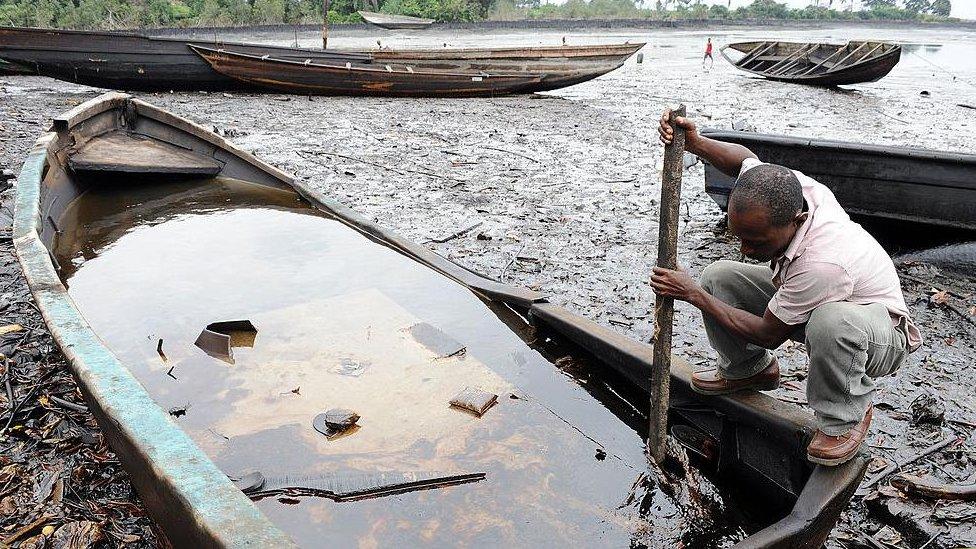
The Niger Delta has been repeatedly contaminated by oil spills
Prof Di Lorenzo said: "The principle is that hydrocarbons are digested by the organisms in the soil into less or totally non-harmful components and in doing so they release electrons."
She added: "Once again we generate electricity with that and in this way we achieve two things - we purify contaminated soil and you generate electricity at the same time."
It could prove transformative for places like the Niger Delta in southern Nigeria, which repeated oil spills have turned into one of the most polluted landscapes on earth.
"The technology is extremely low-cost and it could be a solution to areas like Nigeria that don't necessarily have access to really expensive treatments," Prof Di Lorenzo said.
"Also the amount of energy can be used to make the overall process self-powered and self-sustaining, or maybe to power some devices such as sensors placed there to monitor the progress of the treatment."
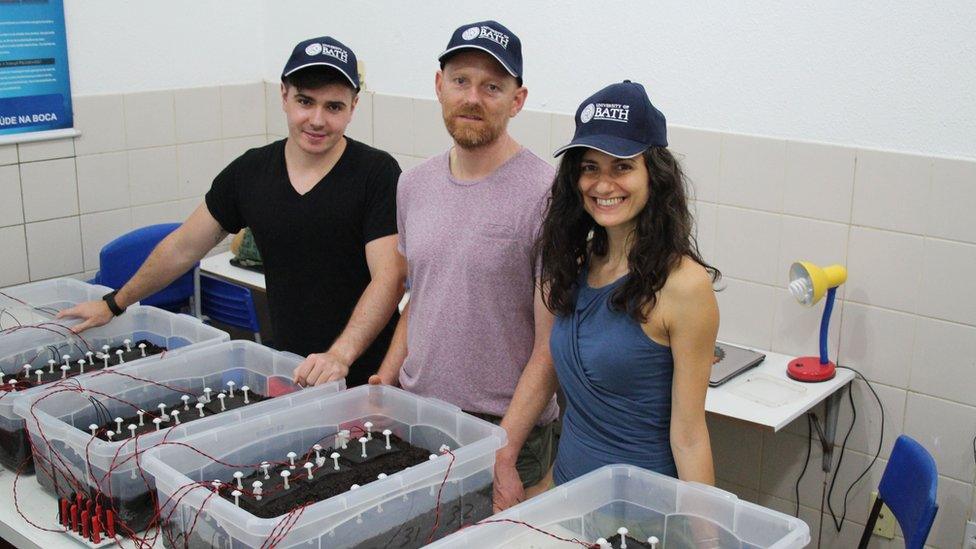
Bath researchers Jakub Dziegielowski (left), Dr Jannis Wenk and Dr Mirella Di Lorenzo
Closer to home, the planned start-up will initially focus on "smart" agriculture applications.
These include sensors to monitor soil health and allow growers to tailor fertiliser application and minimise pesticide use to improve sustainability.
"SMFCs only generate a tiny amount of electricity but together with other renewable technologies hopefully they can help us to phase out fossil fuels," Prof Di Lorenzo said.

Follow BBC West on Facebook, external, Twitter, external and Instagram, external. Send your story ideas to: bristol@bbc.co.uk
Related topics
- Published31 January 2023

- Published27 February 2023
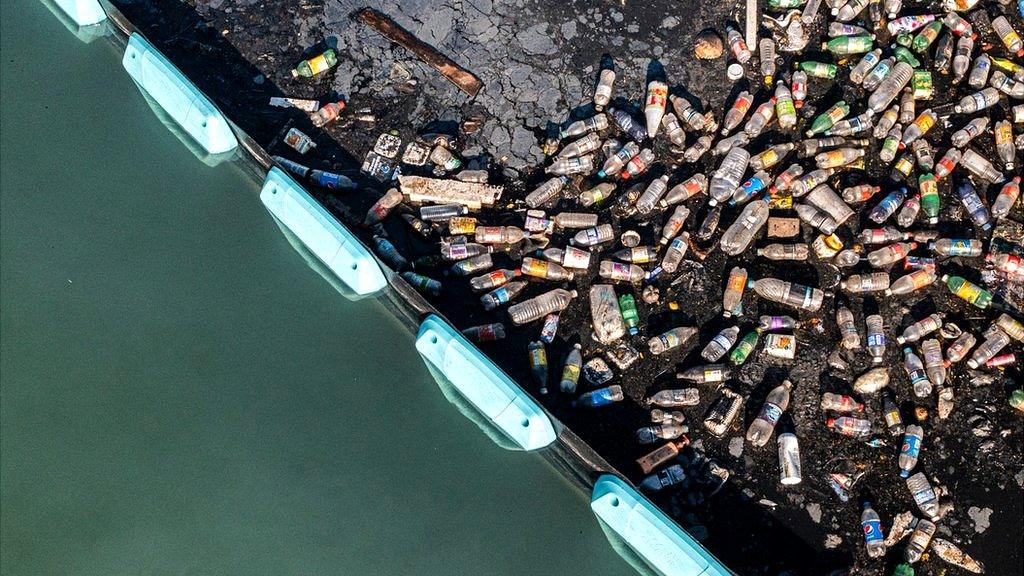
- Published5 February 2023
